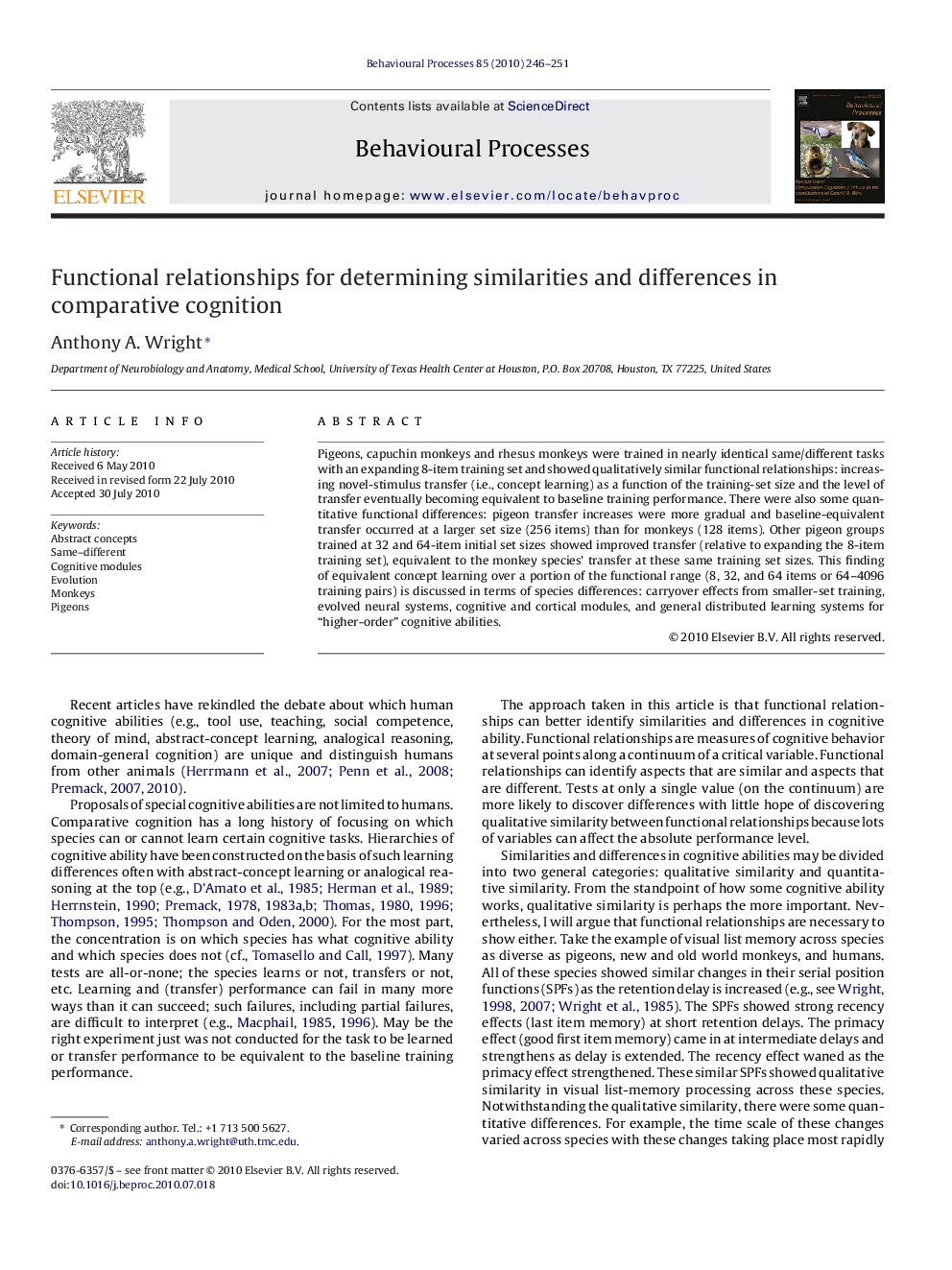| Article ID | Journal | Published Year | Pages | File Type |
|---|---|---|---|---|
| 2427382 | Behavioural Processes | 2010 | 6 Pages |
Pigeons, capuchin monkeys and rhesus monkeys were trained in nearly identical same/different tasks with an expanding 8-item training set and showed qualitatively similar functional relationships: increasing novel-stimulus transfer (i.e., concept learning) as a function of the training-set size and the level of transfer eventually becoming equivalent to baseline training performance. There were also some quantitative functional differences: pigeon transfer increases were more gradual and baseline-equivalent transfer occurred at a larger set size (256 items) than for monkeys (128 items). Other pigeon groups trained at 32 and 64-item initial set sizes showed improved transfer (relative to expanding the 8-item training set), equivalent to the monkey species’ transfer at these same training set sizes. This finding of equivalent concept learning over a portion of the functional range (8, 32, and 64 items or 64–4096 training pairs) is discussed in terms of species differences: carryover effects from smaller-set training, evolved neural systems, cognitive and cortical modules, and general distributed learning systems for “higher-order” cognitive abilities.
Research highlights▶ Expanding training sets produce qualitatively similar abstract concept learning in pigeons and monkeys. ▶ Same/Different abstract concept learning is not explained by stimulus generalization. ▶ Elimination of pigeon carryover effects produce quantitatively similar concept learning to monkeys.
